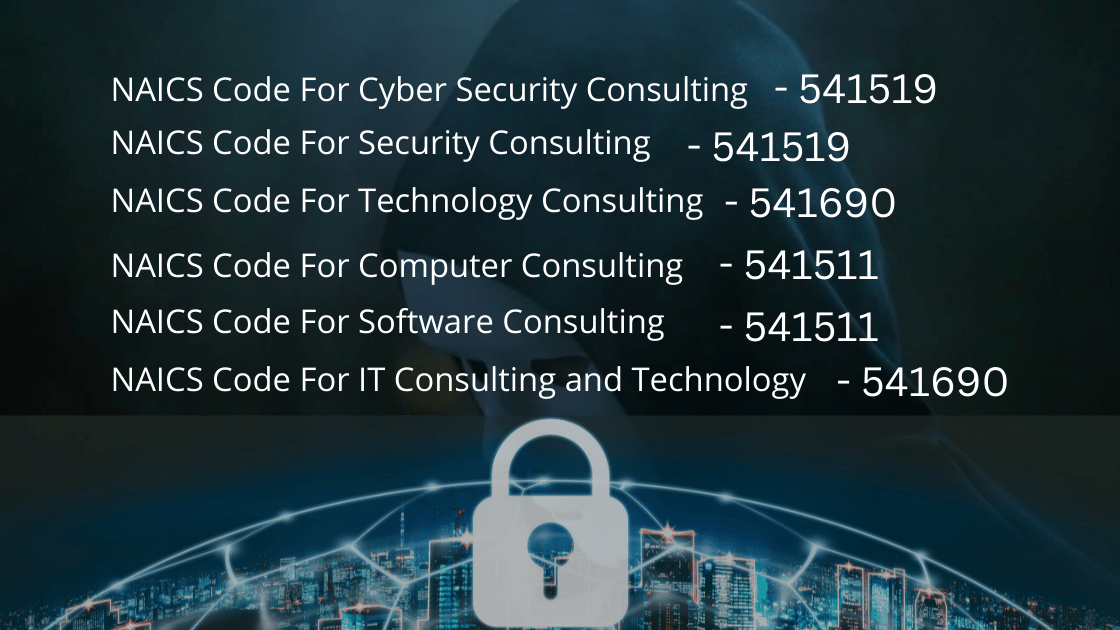Cyber security is a hot topic these days, and for good reason. With technology moving faster than ever before, it’s becoming increasingly difficult to keep information safe from hackers. In this blog post, we will explore what cyber security entails and why it’s such an important issue.
What is Cyber Security?
Cyber security is the practice of protecting computer networks and systems from attack. It encompasses a variety of initiatives, including detecting and responding to attacks, maintaining cyber defenses, and creating a secure information environment. Cyber security practitioners must keep up with rapidly evolving threats, technologies, and methods in order to protect networks and systems.
A cyber attack occurs when an adversary gains unauthorized access to or alters data on a computer system. This could include stealing data or disrupting operations. Cyber attacks can be carried out by individuals or groups working independently or as part of a larger coordinated effort.
There are many types of cyber attacks:
- An online attack refers to an attempt to exploit vulnerabilities in web applications or websites in order to gain access to personal information or confidential data.
- A network attack involves exploiting weaknesses in the network infrastructure itself in order to compromise computers and data.
- A code injection attack exploits flaws in software code that allows unauthorized modifications of the program’s behavior.
- A phishing attack involves sending fake emails that look like they come from a known source (like a company you work for) but contain harmful content instead. Phishing attempts can be used to steal login credentials or other sensitive information.
What is an Attack?
An attack is when a hacker gains unauthorized access to a computer or other device in order to exploit weaknesses and steal data, confidential information, or money. Attacks can come from anyone – your neighbor, coworker, or even a complete stranger online.
Cyber security is one of the most important aspects of online safety. It’s not just about installing antivirus software and using passwords; it’s also about being aware of potential attacks and taking the necessary precautions to protect yourself. Here are some tips for staying cyber safe:
- Keep up-to-date on security patches: Make sure you have the latest security patches installed on all your devices, including your computer, smartphone, and router. If a vulnerability is discovered in a patch, companies often release a new version of the patch that fixes the vulnerability. Be sure to read product announcements and follow instructions from your device manufacturers if you have questions about applying updates.
- Use strong passwords: Make sure all of your accounts –including personal email addresses and social media profiles– use strong passwords that are unique and difficult to guess. Don’t use easily guessed words like “password” or common names like “John” as passwords. And don’t reuse login credentials across multiple websites; create separate user accounts for each site you visit.
- Install antivirus software: Antivirus software can help detect and prevent some malicious attacks. Make sure you have the latest version installed on your computer and keep up-to-date on virus alerts.
- Use caution when online: Be cautious when using the internet, especially if you’re using public wifi networks or open networks that others may be able to access. Always use caution when downloading files from unknown sources, whether they’re emails, attachments, or links in social media posts. Keep an eye out for phishing scams, in which attackers try to trick you into clicking on a link that takes you to a website where you input your login information or financial information.
- Use protective software: Some cyber security threats can be prevented by using protective software such as anti-virus or anti-spyware programs. Be sure to read product announcements and instructions before installing these programs, and always keep up-to-date with virus alerts.
The Different Types of Cyber Attacks
Cyber Security is the practice of protecting computer networks and other electronic systems from unauthorized access, use, or disclosure. The term covers a wide range of activities, from simply installing antivirus software to more involved measures such as monitoring traffic on networks and blocking malicious software at the gateway.
Cyber security threats can come in many different forms. Some are aimed at causing physical damage to systems or stealing confidential data, while others are designed to disrupt operations or expose people to identity theft or other scams.
There are three main types of cyber attacks:
Malicious Software Attacks: Malicious software (malware) is a type of attack that can exploit vulnerabilities in computers and networked systems for criminal gain. Malware can be installed on devices without the user’s knowledge or consent, leading to infections and data losses.
Denial-of-Service Attacks: A denial-of-service (DoS) attack is an attempt to prevent legitimate users from accessing a system or service by overloading it with traffic from machines controlled by the attacker. This can result in system crashes, lost business productivity, and even theft of sensitive information.
Cross Site Scripting Attacks: Cross site scripting (XSS) attacks involve injecting malicious scripts into Web pages viewed by unsuspecting users. XSS attacks allow attackers to inject SQL commands into Web forms entered by unsuspecting visitors, steal their passwords, or execute arbitrary code with the privileges of the user visiting the page.
How to Protect Yourself Online?
There are many ways to protect yourself online, but some basics include using a strong password and getting regular security updates for your software. You can also install antivirus software and keep an eye out for suspicious activity on your computer. If you’re worried about cybercrime, be sure to read up on what it is and how to protect yourself.
How to Protect Yourself from Cyber Attacks?
A cyber attack is an attempted intrusion into a computer or network in order to exploit vulnerabilities and access sensitive data. Cyber security encompasses all measures taken to protect networks and systems from such attacks, including the installation of antivirus software, firewalls, and other security measures.
There are many different types of cyber attacks, but some of the most common include:
- Spoofing: This type of attack involves falsely posing as someone or something else in order to deceive a victim. For example, a hacker may send an email that looks like it comes from your bank, requesting your account information.
- Spear phishing: Spear phishing is a type of cyberattack where attackers spoof legitimate email addresses in order to trick unsuspecting users into opening attachments or clicking on links embedded within the emails. These links may then lead the victim to websites that contain viruses or other malware.
- DDOS (Distributed Denial of Service): A DDOS attack occurs when network servers are overwhelmed by requests from users trying to access them at the same time. This can cause these servers to go offline, preventing legitimate users from accessing their personal information or online resources.
- Social Engineering: Social engineering is a technique used by hackers to gain access to user accounts or passwords by exploiting vulnerabilities in human psychology. For example, hackers may use fake profiles or websites that seem legitimate in order to lure victims into revealing sensitive information.
How Cyber security Protects You?
Cyber security is the practice of protecting computer networks and information systems from unauthorized access, use, or disclosure. In order to protect assets and maintain compliance with federal regulations, businesses must have a cyber security program in place.
A cyber security program typically includes the following components:
- Prevention: Cybersecurity professionals work to identify potential vulnerabilities in systems and networks, and take steps to plug them before they become a problem. This includes using scanning and prevention tools to identify malicious code or spyware, as well as maintaining up-to-date anti virus protection programs.
- Detection: When something does go wrong, cybersecurity professionals quickly detect it and take appropriate action. They use intrusion detection systems (IDSs) that monitor network traffic for signs of infiltration, as well as firewalls that block unauthorized access or prevent data from being accessed by unauthorized users.
- Response: If something does get past the firewall or IDS, responders can start tracking down the source of the attack and stop it before it causes irreversible damage. Response teams typically have expertise in various areas such as malware analysis, digital forensics analysis, vulnerability assessment, incident response planning and coordination, network management and monitoring, system administration skillsets, customer service skillsets etc.
The Growing Threat of Cyber Attacks
Cyber security is a rapidly growing concern that businesses and individuals alike need to be aware of. Cyberattacks are on the rise, with hackers becoming more sophisticated and determined each year. In 2013, there were more than 500 million attacks detected, a 40% increase from 2012.
The importance of cyber security cannot be overstated. A cyberattack can devastate both your business and personal life, impacting everything from revenue to reputation. There have been cases where entire companies have been shut down as a result of a cyberattack.
What does it take to protect yourself against a cyberattack?
There isn’t one single answer to this question since the best way to protect yourself depends on the type of attack you are facing and your specific needs. However, some basics include installing up-to-date antivirus software, monitoring network traffic for signs of intrusion, and having backup plans in place in case your computer is compromised.
In addition to basic cybersecurity measures, there are several other factors which should be considered when planning for a successful cyber attack:
- Properly strategizing your digital footprint – Creating an effective digital strategy is key if you want to minimize the chances of being attacked in the first place. Make sure you are using strong passwords, using two-factor authentication when possible, and protecting sensitive data with proper encryption techniques.
- Updating software regularly – Always keeping your software up-to-date is important for both your business and personal safety. outdated software can leave your computer open to attack, and can also contain security vulnerabilities that hackers can exploit.
- Being aware of your surroundings – keeping an eye on what is happening around you is key to staying safe online. Be aware of who is visiting your website and email addresses, and be suspicious of any unsolicited or unexpected emails.
- Being proactive in the event of a cyberattack – If you are aware of an impending cyberattack, take steps to protect yourself, including disabling third-party cookies, changing all passwords, and activating security features on your computer.Overall, cyber security is a complex subject with many layers of protection. However, by taking simple steps such as updating software regularly and being aware of your surroundings, you can help protect yourself from potential cyberattacks.
What to do if you’re the victim of a cyber attack?
If you are the victim of a cyber attack, there are several things you can do to protect yourself. First, be sure to keep up-to-date on the latest security threats. Second, install anti-virus software and keep it updated. Third, create a strong password and don’t use easily guessed passwords. Fourth, keep your computer and devices locked down with appropriate security measures. Fifth, report any suspicious online activity to your cyber security provider. Finally, learn how to respond if you are targeted in a cyber attack and what steps to take if you become a victim yourself.
Conclusion
As the world becomes increasingly digital, it is important that we take steps to protect ourselves online. Cyber security encompasses a wide range of measures that we can take to keep our personal information and computers safe from attack. Here are just a few of the most common types of cyber security:
- Password protection: Protecting your passwords is one of the most important things you can do to protect your computer and personal information. Make sure to create strong passwords that are easy for you to remember but difficult for someone else to figure out.
- Security software: Many people rely on installed security software (such as antivirus or anti-spyware programs) to help them stay safe online, but these programs also offer protection against cyber attacks.
- Privacy settings: When you’re using public WiFi hotspots, make sure to turn off all your privacy settings (including location tracking) so that no one knows where you are or what websites you’re visiting.
- Cyber hygiene practices: Don’t share personal information (like your Social Security number) without proper precautions in place.










Leave a Reply